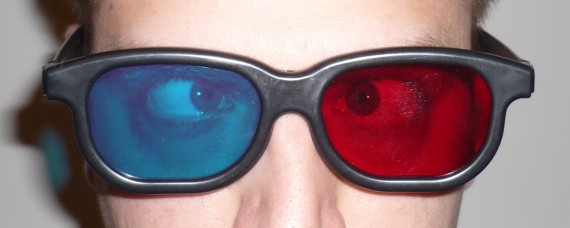The Skill of Doubt
 “I just read the Bible for what it says.”
Welcome to one of the most annoying statements I hear people say. Why? Because nobody does this.
We all have lenses, called presuppositions, that filter how we process what we read and experience. Think of it like wearing glasses with different types of tint on them. The more objective among us are aware of these lenses and take them into consideration when discerning truth. The subjective among us pretend they don’t exist or that they don’t affect them. Your personality by itself is a huge lens.
Don’t believe me? Click here to take a brief survey. It will give you your Hermeneutics score, which basically shows you how theologically conservative or liberal your lenses are. We use this in hiring new staff as it quickly gives me a glimpse into the presuppositions that you have.
What’s your number? I encourage you to leave it as a comment on this post.
A healthy response to this reality may surprise you. It’s doubt. I’m talking about healthy doubt for the purpose of finding greater clarity and not doubt to excuse laziness or to hide behind. As I’m learning lately, not everyone has the ability to doubt in a healthy way. I submit that there are at least three ingredients needed to doubt through your presuppositions:
“I just read the Bible for what it says.”
Welcome to one of the most annoying statements I hear people say. Why? Because nobody does this.
We all have lenses, called presuppositions, that filter how we process what we read and experience. Think of it like wearing glasses with different types of tint on them. The more objective among us are aware of these lenses and take them into consideration when discerning truth. The subjective among us pretend they don’t exist or that they don’t affect them. Your personality by itself is a huge lens.
Don’t believe me? Click here to take a brief survey. It will give you your Hermeneutics score, which basically shows you how theologically conservative or liberal your lenses are. We use this in hiring new staff as it quickly gives me a glimpse into the presuppositions that you have.
What’s your number? I encourage you to leave it as a comment on this post.
A healthy response to this reality may surprise you. It’s doubt. I’m talking about healthy doubt for the purpose of finding greater clarity and not doubt to excuse laziness or to hide behind. As I’m learning lately, not everyone has the ability to doubt in a healthy way. I submit that there are at least three ingredients needed to doubt through your presuppositions:
- engagement – Do you care enough to ask more questions that will always involve more work? Or, are you content to throw in the towel and accept an easy answer? Will you allow someone else to do your thinking for you and then just skip to the end and tell you what you should believe?
- intellect – Do you have the ability to ask critical questions? Do you know enough to realize how much you don’t know? Ignorance may be bliss, but it is also isolating from reality. How much do you expose yourself to new ideas and to perspectives that don’t agree with you?
- maturity – Can you handle believing in something that makes the most sense to you even if it doesn’t make perfect sense? Even if you still have questions about it? Can you doubt without it paralyzing you?
Do You Want to Read the Bible Without Falling Behind?
Sign up your email and I’ll send you a PDF to download and use my custom-made reading plan system. There’s no way to fall behind on this system and every day will be different no matter how long you use it!
I’ll send future content directly to your inbox AND you can dive into the Bible like never before.




